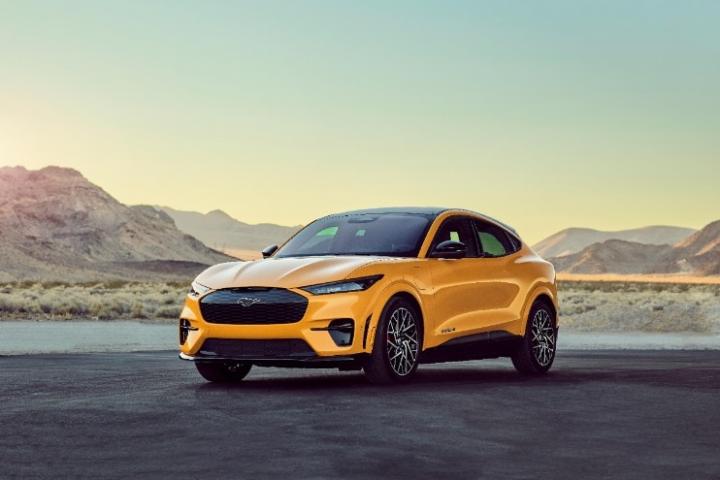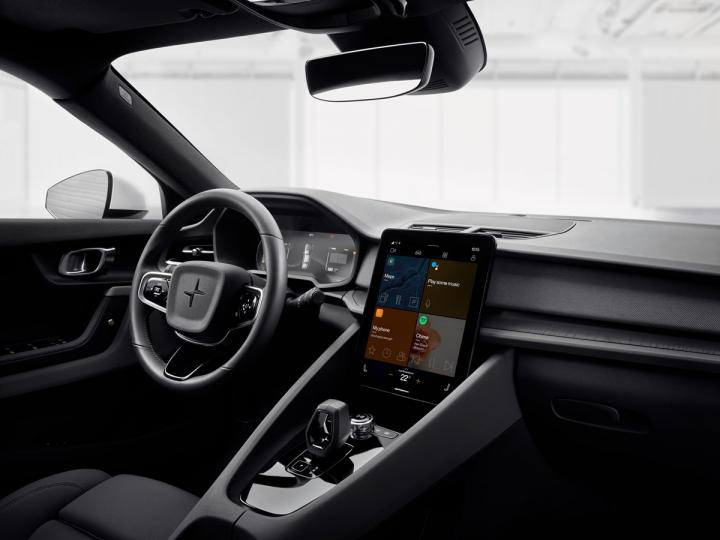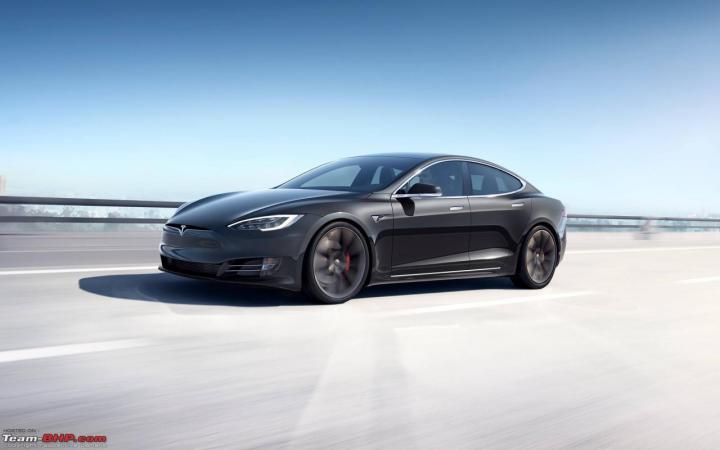News
Uber Lost and Found survey names India's most forgetful city
Apple devices are the most lost items during festive days and Diwali.
Uber has released its annual ‘Lost and Found Index’. The survey lists the most forgetful cities in India, as well as the items that Uber riders forgot in the cabs.
According to the 2024 edition of the Lost and Found survey, travellers in Delhi are the most forgetful, followed by Mumbai and Bangalore. Hyderabad is the 4th most forgetful city, followed by Pune in fifth place.
As per the data, phones, bags, wallets, and clothing were some of the most common items that riders forgot, followed by items like water bottles, keys, spectacles and jewellery. Apple devices are the most lost items during festive days and Diwali.
Besides the usual items that riders forgot in cabs, there were a few unique ones that stood out. These include a Ukulele, a coin collection, prasad and even a hair trimmer. Some riders also forgot their passports, bank and business papers in the cabs.
The survey revealed that riders are most likely to forget their belongings in an Uber on Saturdays and in the evenings at around 7 pm.
News
Elon Musk is driving Model 3 owners away from Tesla, says survey
As per the survey, 21.5% of customers walked away from Tesla because of their disapproval of Elon Musk.
Five years ago, Bloomberg conducted a survey of thousands of Tesla Model 3 owners. Now, they have gotten back to the original responders to see if and how their opinions have changed over the years.
After taking into account the response from the thousands of original responders, the data collected shows that Tesla owners don't like Elon Musk as much as they did 5-years back. The report even goes on to state that Musk's antics are "actively driving away owners from the brand."
The new report showed that the most significant change of opinion among owners was the drop in Elon Musk's approval rating. The survey stated that owners felt a sense of betrayal by Musk because he picked political fights online, downplayed climate change consequences and backed controversial figures & ideas. Elon Musk's approval ratings among owners were lower than even Tesla's customer service line.
As per the survey, 21.5% of customers walked away from Tesla because of their disapproval of Elon Musk. 18.7% of customers had concerns about quality or service, while 17.8% were unhappy with Tesla's brand perception.
Tesla owners also stated that they liked the cars but preferred Musk not to be so tied up to the image of Tesla. One of the owners said, "I don’t want my car to be an Elon Musk conversation starter.”
Source: Bloomberg
- Tags:
- Indian
- International
- Survey
News
Mercedes-Benz is the least reliable brand in USA, says report
Full-size pickup trucks & electric vehicles struggled to do well in the survey, while hybrids were among the most reliable.
According to a recent report, Japanese automakers Toyota & Lexus have been ranked as the most reliable car brands in the USA.
Moreover, Asian automakers made up 7 of the top 10 most reliable car brands, with BMW, Audi & Lincoln being the only three non-Asian car brands to make it to the top 10. BMW came in 3rd, Audi occupied the 6th position, while Lincoln completed the list in 10th place. Coming in at the bottom of the list was Mercedes-Benz, with Jeep, Volkswagen, GMC, Chevrolet & Tesla fairing slightly better.
As per reports, full-size pickup trucks struggled in the reliability survey, averaging a score of just 30 out of 100. Electric vehicles also struggled to do well in the survey, with an average reliability score of 36. Owners of the Chevrolet Bolt, Ford Mustang Mach E, Hyundai Kona Electric & VW ID.4 reported issues with battery packs, motors & more.
However, hybrids & plug-in hybrids aced the survey, being among the most reliable vehicles, averaging a score of 65/100. Vehicles like the Lexus NX Hybrid, Hyundai Santa Fe Hybrid and Toyota Highlander Hybrid were among the top models in the category. Cars (sedan, hatchbacks & coupes) registered an average score of 58, followed by SUVs with 51 & minivans with 44.
The survey is said to have gathered data from over 3 lakh vehicles from 2000 to 2023 model years. It has collected data in 17 trouble areas, including engine, transmission & in-vehicle electronics.
Source: ConsumerReports
- Tags:
- Indian
- Survey
- International
News
Survey: US customers buying EVs for tech & not lower emissions
The idea of luxury defined by "what's under the hood", has been replaced by the prioritization of connectivity and integration of digital ecosystems.
Polestar recently commissioned a new survey, which revealed that 55 per cent of EV owners in the USA bought their vehicles for reasons other than environmental benefits. The survey found that majority of the EV buyers in the USA named in-vehicle technology, connectivity & infotainment system offerings as the main reason for switching from IC-engine vehicles to electric.
Gregor Hembrough, Head of Polestar North America stated that the idea of luxury defined by "what's under the hood", has been replaced by the prioritization of connectivity and integration of digital ecosystems.
Although environmental reasons weren't the most important factor when buying EVs, the survey found that younger drivers were more concerned about appearing to be environmentally conscious, as opposed to older buyers who were less worried about it. 12% of young drivers (aged 18 - 24) stated that appearing to be environmentally conscious was a big factor when choosing an electric car over an ICE vehicle. This is twice as much as Millenials (ages 25 - 41) and three times more than older buyers aged between 57 & 74.
Age also played a role in determining the trustworthiness of a brand. Up to 57% of buyers aged between 25 & 40 are confident in new electric car brands, compared to only 28% of older buyers (aged 57 - 74). Overall, 47% of all respondents in the survey were open to new brands and start-ups when buying an electric car.
The survey conducted by Polestar was commissioned by a third-party company which polled over 5000 EV and ICE-vehicle owners across all 50 US states.
News
Survey: Car buyers unwilling to subscribe for features & services
However, they were willing to exclude a few features and services like in-vehicle Wifi and vehicle tracking.
Multiple carmakers across the globe have started to introduce monthly & annual subscription fees for various in-car features, services & upgrades. However, according to a new study, 75% of car buyers are unwilling to pay the extra subscription fee and feel many of these features & services should be part of the vehicle's initial purchase price.
Three-quarters of the consumers who took part in the survey stated that they would be unwilling to pay extra for various in-car features & upgrades while buying a new car. Consumers expect the initial cost of the cars to include the features and services. Consumers overwhelmingly voted for safety & comfort features such as lane-keep assist, automatic emergency braking, remote start & heated and cooled seats to be part of the purchase price and not have to pay extra.
However, they were willing to exclude a few features and services like in-vehicle Wifi and vehicle tracking from the standard list and be part of a subscription plan.
The 25% of the consumers who were willing to enter a subscription by paying extra had features & services in three categories: safety, vehicle performance & creature comforts. 80% were willing to pay an additional $30 - $35 per month for most of the safety features. Around 39% said they were willing to pay a monthly fee of $20 - $25 for vehicle performance, while only a few were willing to pay extra for personalised creature comfort features.
Source: Cox Automotive
News
Over 40% buyers want their next car to be electrified
One of the main reasons for the growing interest in electrified vehicles was the COVID-19 pandemic.
The results of a new global survey show that the interest towards electric vehicles is steadily growing. Reports suggest that a rising number of people are considering purchasing their next car with an electrified powertrain. This includes either pure electric, conventional hybrid or plug-in hybrid models.
According to a global survey conducted by EY, 41 percent of the consumers said they would prefer an electrified powertrain on their next car. The survey involved 9000 consumers across 13 countries, including USA, UK, Germany, Australia, India, China and South Korea. However, the results varied depending on the country.
The survey from India showed that only 28 percent would prefer their next car to be electrified, with 65% opting for the traditional IC-engine powered vehicle. Also, 2% of the respondents in India said they would choose hydrogen or fuel cell vehicles, while the remaining 5% were still unsure.
The US market also had a similar result, with 66% preferring IC-engine vehicles and 28% opting for electrified cars as their next purchase.
Having said that, the results were opposite in countries like South Korea and Singapore. The survey showed that 51% in South Korea and 53% in Singapore would prefer an electrified car as their next vehicle, while only 32% and 35% (respectively) continue to opt for IC engine cars.
The survey also revealed that one of the main reasons for the growing interest in electrified vehicles was the COVID-19 pandemic. As per the survey, 78% of potential non-ICE buyers stated that the pandemic heightened their level of environmental awareness - crucially reflecting on their decision to shift to sustainable mobility solutions.
Source: EY
News
JD Power shuts down operations in India & South-East Asia
According to a media report, US-based marketing information services company JD Power is shutting down its operations in India and South-East Asia.
JD Power is known for conducting automotive surveys such as Vehicle Dependability Study (VDS) and Initial Quality Study (IQS). VDS is a measure of problems experienced after 3 years of ownership, while IQS is a measure of issues experienced within the first 90 days of ownership.
The company also conducts surveys of dealership service and customer purchasing experience. The APEAL survey is a measure of the customer's attitude towards a vehicle's attributes.
JD Power also conducts customer-centric research of marketing and advertising firms.
JD Power was founded by James David Power III in 1969. In 1988, the company set up a joint venture in Japan and in 2006, it expanded into China and other Asian markets.
News
Over 90% rear seat passengers don't use seat belts
According to a research conducted by Nissan India and SaveLIFE Foundation, more than 90% rear seat passengers don't use seat belts.
The results of an observational survey conducted in Delhi, Mumbai, Bangalore, Jaipur and Lucknow show that 98% passengers were not using rear seat belts, even though 70% were aware that seat belts were provided for back seat passengers. Also, only 27.7% respondents were aware that rear seat belt usage is mandated by law in India.
According to the Ministry of Road Transport and Highways, 9,408 children lost their lives in road accidents in 2017, which translates to 26 child deaths per day. Two thirds of the respondents believed that Indian roads are unsafe for children and 91.4% felt the need for a strong child road safety law in India. While 92.8% were aware of the safety benefits of child helmets, only 20.1% owned one.
- Tags:
- Indian
- Nissan
- Survey
- Road Safety
News
Accenture: Study on car buyers & the internet
A recent study by Accenture has found out that a majority of the surveyed recipients wish to have a greater role of digital media during the car-buying process. Contrary to the older process where the car-buying experience was all about visiting multiple dealerships, test driving different vehicles, negotiating with the dealers for the best deal etc. car-buyers today have changed preferences.
The global survey was conducted among 10,000 car owners across 8 different countries - India, China, Brazil, France, Germany, Italy, Japan and the United States. Some key findings of this survey are as below:
India-specific findings
- 84% of the drivers would choose to go through an entirely online procedure to buy a car, which includes financing, price negotiation, paperwork and home delivery of the vehicle.
- 53% of the respondents claimed to have been influenced by car websites and online automotive publications, when making a car-buying decision.
- 82% are interested in online financing and negotiations in the car-buying process.
- 69% Indians claimed that free oil changes or maintenance options would influence the choice of buying/leasing a new car.
Global findings
- 80% of respondents looking to buy a new vehicle use some form of digital technology to research.
- 62% initiate the car buying process online (which includes seeking help from social media channels) before visiting a car dealership.
- 75% would consider their entire car-purchase process online. Interestingly, 92% of the Chinese respondents were 'for' this idea while 80% of the Japanese were 'against' it.
- 63% would be interested in buying a new car via an online auction. 90% of the Chinese respondents were interested in this while 80%, 65% and 55% of Japanese, French and Germans were against the idea.
- >50% respondents hopes that the automobile industry improves the online channels to make researching a new vehicle easier. Users are more interested in getting tailored information available online, more demonstrations and more sites which provide an opportunity for comparison shopping.






















_2.jpg)








